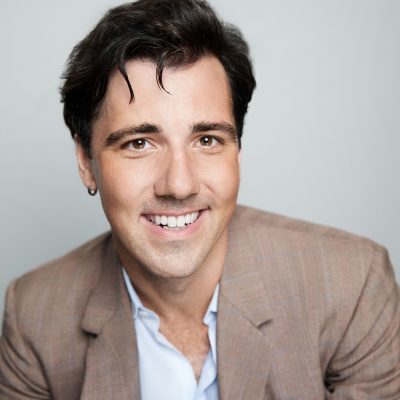Student Spotlight: Malcolm Bare

December 20, 2021
Malcolm Bare is a doctoral candidate in English language and literature from Denville, New Jersey. After attending Rutgers University — New Brunswick as an undergraduate, he chose to pursue further study at Cornell due to the freedom and community. Having completed all requirements for the Ph.D., Bare successfully navigated the job search and led a recent workshop in which he shared insight with others.
What is your area of research and why is it important?
I was a digital humanist. My research focused on how the discipline could adjust its practices to be interoperable with those in natural language processing and machine learning. The jist of it parallels my work in IT now. I still feel like I’m still trying to answer the question of how to respectfully support a legacy system while nudging folks to something a little more contemporary and practical.
What are the larger implications of this research and how is it making an impact?
One of the project’s discoveries is that some literary critical methods can be recreated by indexing a qualitative dataset. Novels have peaks of rich description that literary critics always gravitate toward. In some sense it’s humbling to realize a lot of a critical practice can be boiled down to admiring the shiny thing in the front of the window. But for me and my unfortunate hipster sensibilities it was just the invitation to rummage through the back of the store and try to fashion the castaways into something new.
How did involvement with Careers Beyond Academia expand your ideas of what careers are available to humanities Ph.D.s?
Careers Beyond Academia fills a gap left in Ph.D. programs. Most humanities faculty have career trajectories that limit the support they can offer. They do so much already — we can’t expect them to moonlight as UX designers or consultants.
Meeting with Denise DiRienzo and company helped because it shed a different light on the Ph.D. I had no clue how organizations were structured, what jobs and departments I should look into, or how to tailor the work I had been doing for those opportunities. Careers Beyond Academia offered some places to start and provided continued support during the process.
Having navigated the job search successfully and led an information session on it, what would you like current humanities doctoral students to know about the process?
Writing a dissertation while applying for jobs can feel like you are building the ship you plan to jump from. But I have found that the dissertation’s values follow my work across industries. Your dissertation may not move and shake the field, but it offers a lifelong blueprint for how you try to find truth and handle complex issues.
What are your hobbies or interests outside of your research or scholarship?
I bake bread. It reminds me of Bread Club and I always miss Bread Club! But I’ve shared a country loaf with three lovely research scientists from our computing cluster, so at least people are being nourished by my inconsolability.
Apart from that, I take guitar and electric bass lessons. I rock climb. For leisure, I am usually at a show or catching a midnight movie. I started pastry classes. I am tempted to try a dance class; I attended a Kate Bush/ABBA themed dance party on Halloween and realized new gaps in my skill set.
Why did you choose Cornell to pursue your degree?
Cornell’s a textured place and I’m a textured person. My morning started in Green Dragon, maybe an NLP class in Gates or TAing a class at Dyson in the afternoon, and then my night would finish with Ellis Hanson’s Desire Class, or Bread Club, or my FWS. Architects, artists, bakers, computer scientists, business students, and more all in a day!
Not every Ph.D. program welcomes that freedom. But meeting those communities across campus is why I have the job I do now. Cornell is such an easy, gentle place to be honest and curious.
